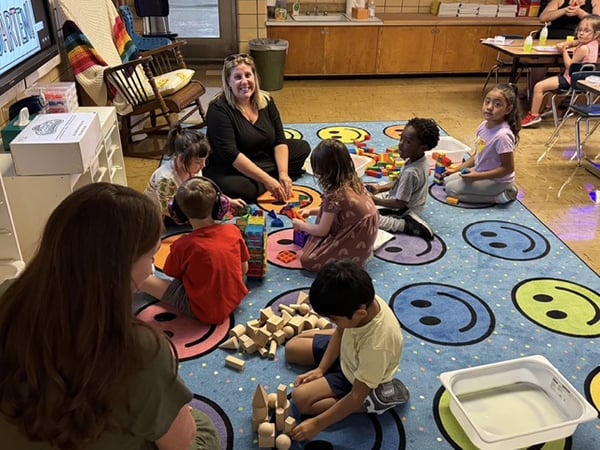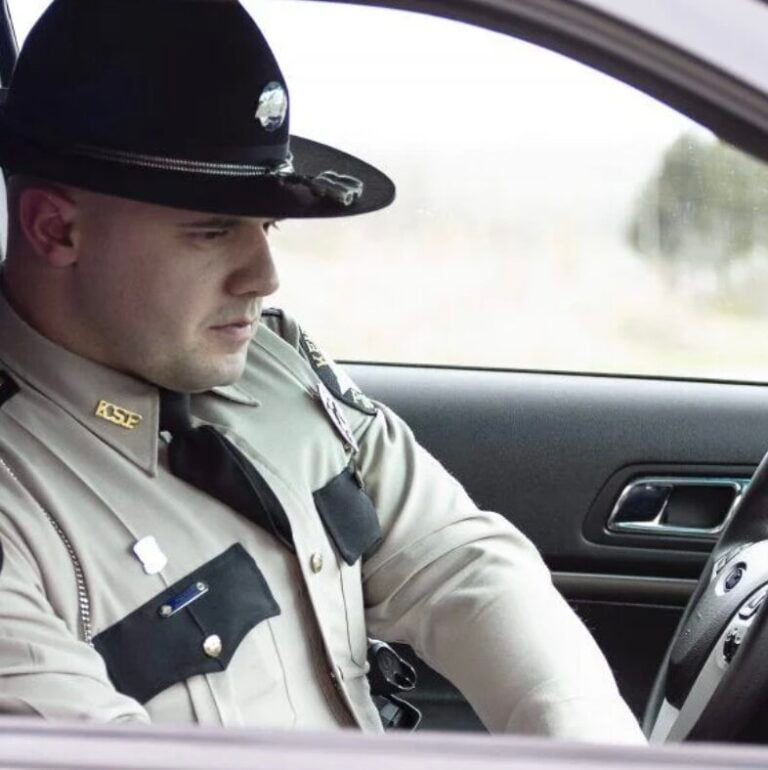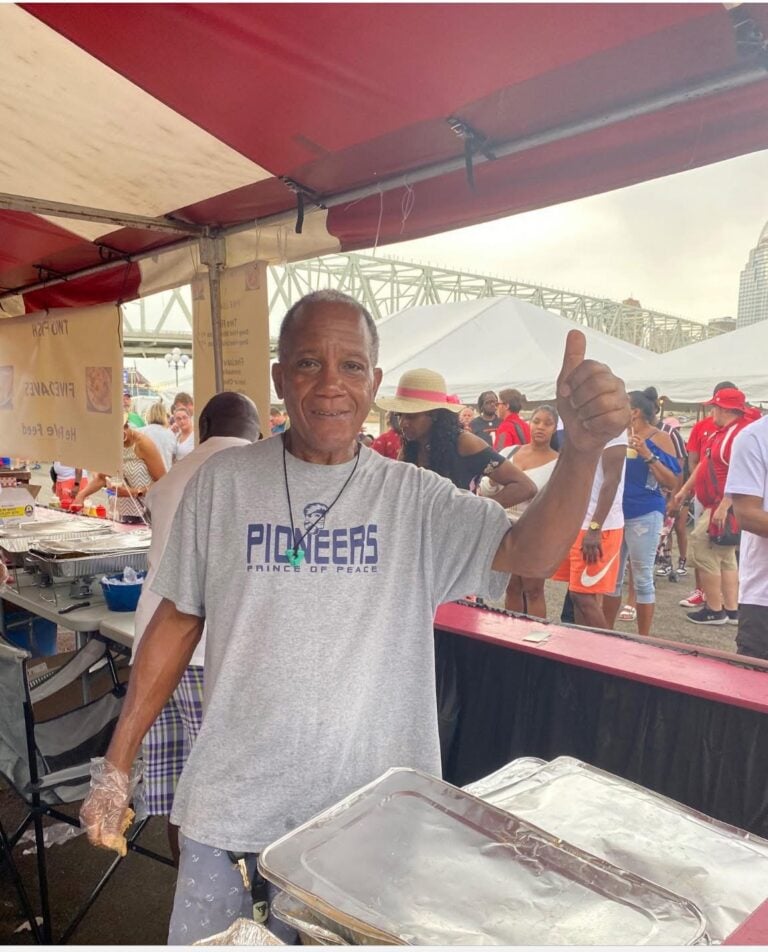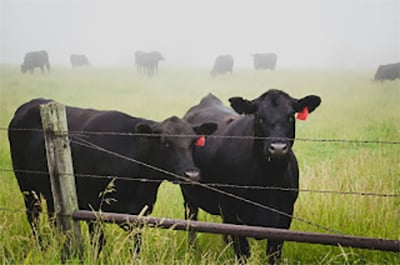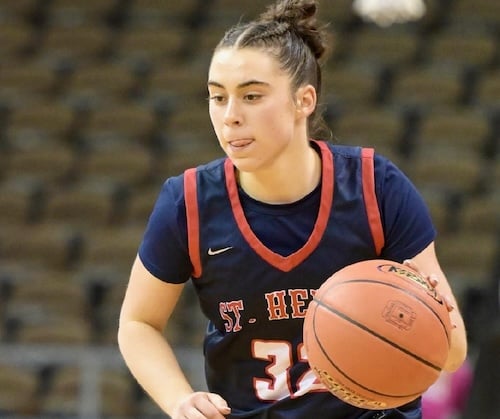When I was growing up, the Thanksgiving menu was anchored by the big bird, stuffing, and two kinds of potatoes — mashed white and sumptuous sweet. On both ends of the table, baskets overflowed with Parker House rolls, slathered with enough butter to clog the spunkiest arteries. Adding splotches of color to the meal were fresh carrots, string beans, and homemade gravy, steaming hot and studded with chunks of turkey giblets. (Ugh!)
Creamed onions rounded out the meal. Not canned, but the white pearly kind, gently boiled and then tucked into sauce thick enough to repair loose bricks in the chimney.
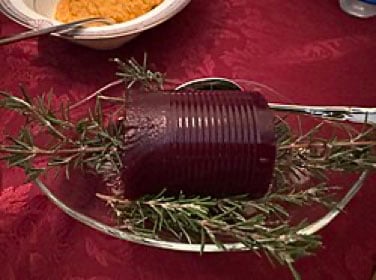
No one would have missed the cranberry sauce but Mother always remembered. The table was not complete until the glistening ruby cylinder was placed on the table, still quivering from the delicate struggle to get it out of the can, intact.
Thanksgiving usually meant that Aunt Marge and Uncle Jim took the train from New York to spend the holiday weekend with the seven of us, in the wilds of suburban New Jersey. Not exactly blood relatives, they were childhood friends of my father from Canada. We called them aunt and uncle because the connection to Daddy went all the way back to St. John, New Brunswick, where winters were so fierce they had to climb out upstairs windows of their houses and snowshoe to school at St. Malachy’s.
Aunt Marge was a nurse who worked for a fancy doctor in NYC, where she was valued for her unstinting calm and wry good humor. We loved her for those traits but also cherished the stack of thin silver bracelets she always wore. We all had teethed on them when we were babies, and she could point out which tiny dents belonged to each Alexander child. Or so she claimed.
My father and Uncle Jim had served in World War I together. Their accounts of military duty in Belgium and France made the effort sound more like a wine tasting instead of a valiant effort to make the world safe for democracy. In spite of them, the Allies won. After Armistice, my father and Uncle Jim sought their fortunes in the U.S. and, according to the 1930 census, were roommates in New York City until work and marriage took them in different directions.
Aunt Marge and Uncle Jim had no children. We all secretly agreed it was sad because Aunt Marge would have made a wonderful mother. Uncle Jim’s parental potential, however, was debatable. Not only impatient and brusque, he was an arts snob who tuned into the broadcasts from the Metropolitan Opera every Saturday afternoon and insisted we share this cultural adventure with him.
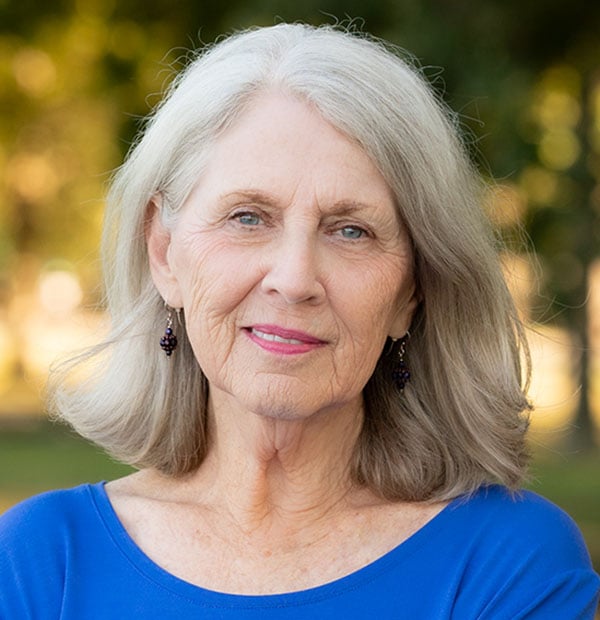
“Opera’s good for you,” he insisted, and we were too cowed to protest.
Most years, our Thanksgiving routine was the same. Aunt Marge and Uncle Jim arrived Wednesday night after work, and the party lasted through the weekend. The whole time, children under twelve were relegated to meals at a rickety card table in the corner of the dining room, while the adults languished at the big table with gleaming silver and fine china. Despite our exile with cast-off dishes and unmatching cutlery, we kids enjoyed making faces and plotting revenge when the adults weren’t looking.
We gobbled up leftovers until Sunday, when the carcass was ready to be transformed into soup. The last slices of turkey and vestiges of other leftovers chugged back to New York on the train, with Aunt Marge and Uncle Jim.
Except for the cranberry sauce.
Ridges intact, it sat forgotten in the refrigerator until Christmastime, when Mother finally gave up and threw it out.
Capture your own holiday memories through The Great Thanksgiving Listen at StoryCorps. The Great Listen encourages people of all ages to create an oral history of our times by recording an interview with an elder, mentor, friend, or someone they admire. This year, National Public Radio and our regional affiliate WKMS-FM, invite you to join the annual Great Thanksgiving Listen, and take pleasure in preserving precious memories.
Constance Alexander is an award-winning columnist, poet, playwright, and president of INTEXCommunications in Murray.








